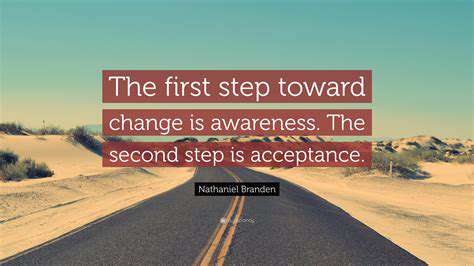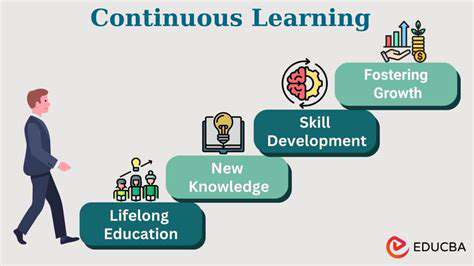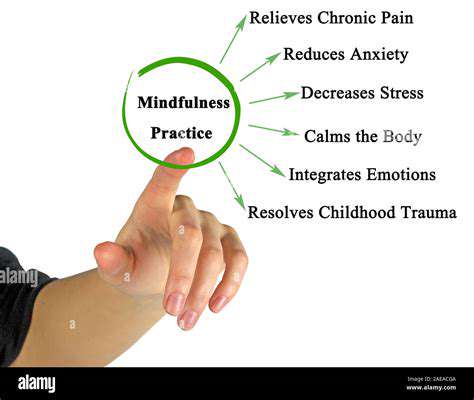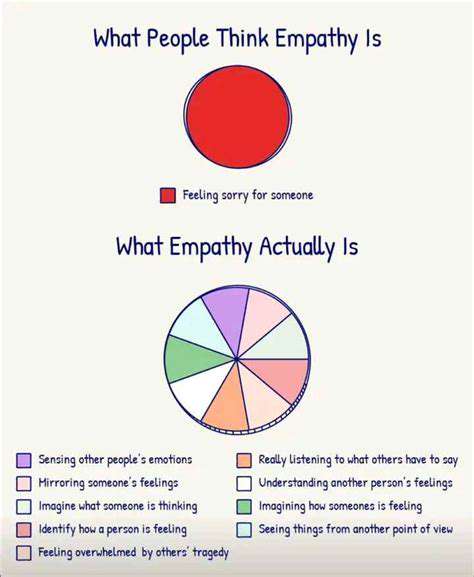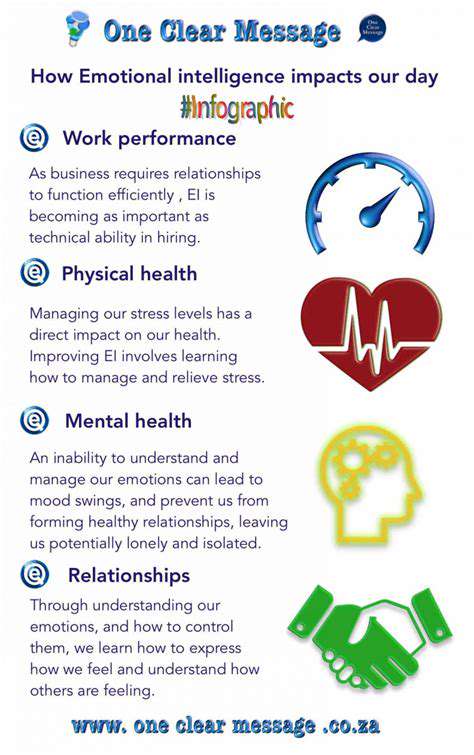The Importance of Emotional Intelligence in Personal and Professional Growth
What are the Key Components of Emotional Intelligence?
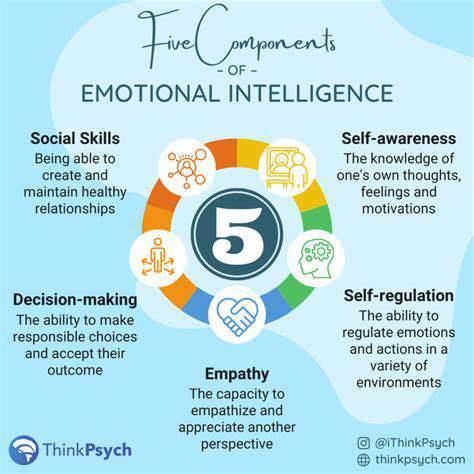
Self-Awareness
Self-awareness is the foundation of emotional intelligence, allowing individuals to understand their own emotions and how they affect their thoughts and behavior. Being self-aware helps individuals recognize their strengths and weaknesses, enabling them to grow personally and professionally. When a person is attuned to their emotions, they can navigate difficult situations with greater ease and clarity.
In the workplace, self-awareness leads to more effective communication and collaboration with others. When team members understand their emotional triggers, they are better equipped to manage conflicts and work collaboratively toward common goals.
Developing self-awareness can be achieved through mindfulness practices, reflection, and seeking feedback from colleagues and friends. By fostering self-awareness, individuals can enhance their emotional intelligence and improve their overall effectiveness.
Self-Regulation
Self-regulation involves managing one’s emotions in a healthy way, particularly in stressful situations. Individuals with strong self-regulation skills can pause before reacting, allowing them to respond thoughtfully rather than impulsively. This ability is crucial for maintaining professional composure during challenging circumstances.
Practicing self-regulation can lead to better decision-making and improved interpersonal relationships. For example, when facing criticism, an individual with good self-regulation will not react defensively but will instead consider the feedback constructively.
Techniques for enhancing self-regulation include stress management strategies, such as deep breathing and positive self-talk, which can help individuals maintain emotional control during difficult conversations or situations.
Empathy
Empathy is the ability to understand and share the feelings of others, which plays a critical role in building strong relationships both personally and professionally. When individuals demonstrate empathy, they foster trust and open communication, allowing for more productive collaborations.
In a professional setting, empathy enhances teamwork and leadership. Leaders who practice empathy can connect with their team members, understand their needs, and offer support, leading to a more engaged and motivated workforce.
Cultivating empathy can be achieved through active listening and being present during conversations. By making an effort to truly understand another person’s perspective, individuals can strengthen their emotional intelligence and ability to connect with others.
Social Skills
Social skills encompass the ability to build and maintain relationships, manage conflicts, and inspire others. Individuals with strong social skills are often adept at working in teams and establishing rapport with clients and colleagues. These abilities are essential for networking and career advancement.
Incorporating emotional intelligence into social skills enables individuals to navigate social complexities effectively. For instance, those who can assess social cues and respond appropriately are better equipped to handle negotiations and ensure positive outcomes.
To enhance social skills, individuals can practice communication techniques, engage in team-building activities, and seek opportunities to collaborate with diverse groups. By improving social skills, one increases their emotional intelligence, paving the way for personal and professional success.
How Emotional Intelligence Contributes to Success
Understanding Emotional Intelligence
Emotional intelligence (EI) refers to the ability to recognize, understand, and manage our own emotions, as well as the emotions of others. It encompasses skills such as emotional awareness, empathy, and emotional regulation.
Unlike traditional intelligence measures, which often focus on cognitive abilities, EI emphasizes interpersonal skills and emotional self-regulation. This is crucial in both personal relationships and professional interactions.
Development of emotional intelligence can lead to improved communication, collaboration, and relationships. Individuals with high EI often excel in social situations and demonstrate greater resilience in facing life's challenges.
Understanding the components of emotional intelligence—self-awareness, self-regulation, motivation, empathy, and social skills—can help individuals identify areas for personal growth. Each component plays a unique role in fostering emotional maturity.
By improving emotional intelligence, individuals can achieve personal growth and enhance their capacity for leadership and teamwork, making it a valuable asset in today's multifaceted environments.
Emotional Intelligence in Personal Relationships
Emotional intelligence plays a fundamental role in personal relationships, affecting how we connect with friends, family, and partners. High EI helps in understanding one’s own emotions, leading to better self-expression and communication.
Being able to empathize with others fosters deeper connections and allows for more meaningful interactions. Individuals with high emotional intelligence are often better at addressing conflicts, as they can recognize and validate others' feelings.
Moreover, emotional intelligence aids in the emotional support we provide. When we understand our emotions, we can be more present and supportive during vulnerable moments, enhancing the quality of our relationships.
Practicing emotional intelligence in personal settings encourages open communication, honesty, and trust. This creates a safe environment where all parties feel valued and understood.
Ultimately, building emotional intelligence within personal relationships can lead to greater satisfaction, loyalty, and resilience in navigating challenges together.
The Role of Emotional Intelligence in the Workplace
In the workplace, emotional intelligence is increasingly recognized as a vital skill for success. High EI facilitates effective communication, collaboration, and conflict resolution among team members.
Leaders with high emotional intelligence can inspire and motivate their teams, recognizing individual strengths and emotional needs. This ability fosters an inclusive and positive workplace culture.
Furthermore, emotional intelligence contributes to better decision-making. Leaders with high EI are often able to weigh emotional data alongside rational analysis, resulting in more balanced and thoughtful decisions.
Companies that prioritize emotional intelligence training for employees see improved overall performance, employee satisfaction, and retention rates. This investment not only benefits individuals but also cultivates a healthier organizational climate.
Ultimately, fostering an emotionally intelligent workplace leads to enhanced communication, increased collaboration, and ultimately, improved productivity and success for the organization as a whole.
Strategies to Enhance Emotional Intelligence
Improving emotional intelligence is a continuous process that involves self-reflection and practice. One effective strategy is cultivating mindfulness, which enhances self-awareness and helps individuals recognize their emotional triggers.
Engaging in active listening can also develop emotional intelligence. By truly hearing what others say and empathizing with their perspectives, individuals can build stronger connections and communicate more effectively.
Regularly seeking feedback from colleagues and peers can provide valuable insights into how one is perceived emotionally. This helps in pinpointing areas for growth and developing a more nuanced understanding of interpersonal dynamics.
Practicing emotional regulation techniques, such as deep breathing or journaling, allows individuals to manage their emotions proactively. This not only aids in personal well-being but also enhances interactions with others.
Finally, building relationships and engaging in social activities can further develop emotional intelligence. Participating in group discussions or team projects can sharpen empathy and social skills, crucial components of EI.
The Impact of Emotional Intelligence on Leadership
Effective leadership transcends traditional management practices; it involves emotional intelligence to inspire and guide teams. Leaders with high EI are adept at recognizing and understanding emotions, enabling them to lead with empathy and support.
Such leaders can adapt their communication style to meet the emotional needs of their team, fostering an environment where individuals feel valued and heard. This adaptability enhances team dynamics and cohesion.
Emotional intelligence is also linked to better conflict resolution skills. Leaders who can understand the emotions behind disagreements can navigate conflicts constructively, leading to productive discussions and resolutions.
Moreover, emotionally intelligent leaders promote a healthy workplace culture by emphasizing the well-being of their employees. They model emotional awareness and regulation, creating a ripple effect throughout their organization.
In essence, by cultivating emotional intelligence, leaders can drive cultural change, foster engagement, and lead their teams toward sustained success and fulfillment.
Developing Emotional Intelligence
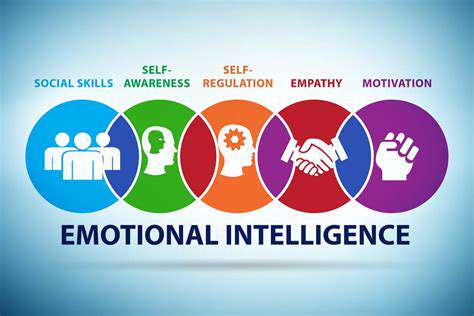
Understanding Emotional Intelligence
Emotional Intelligence (EI) refers to the ability to identify, understand, manage, and utilize emotions effectively in ourselves and in our interactions with others. This skill set not only enhances personal relationships but also plays a crucial role in professional settings. By recognizing emotions, we can navigate complex social situations with greater ease.
EI is often broken down into five key components: self-awareness, self-regulation, motivation, empathy, and social skills. Each of these elements contributes to overall emotional intelligence and is essential for building stronger interpersonal connections. Developing these components can lead to improved communication and collaboration in both personal and workplace environments.
Research has shown that individuals with high emotional intelligence are better equipped to handle stress, make informed decisions, and maintain a positive outlook on life. This quality can lead to enhanced performance at work and healthier relationships outside of it, proving its importance in multiple aspects of life.
Strategies for Developing Emotional Intelligence
One effective strategy for developing emotional intelligence is practicing mindfulness. By being present and aware of our feelings, we can better understand the emotions that drive our thoughts and behaviors. Additionally, mindfulness encourages a non-judgmental attitude towards our emotions, facilitating greater self-acceptance.
Another necessary approach is seeking feedback from others. By engaging in open conversations about our interactions, we can gain valuable insights about how our emotions affect those around us. This feedback can highlight areas for improvement and promote self-growth.
Moreover, participating in social skills training or workshops can significantly enhance emotional intelligence. These programs often teach essential skills such as effective communication, active listening, and conflict resolution, all of which are vital for personal and professional success.
Benefits of High Emotional Intelligence
Individuals with high emotional intelligence typically demonstrate stronger leadership capabilities. They can inspire and motivate others more effectively, creating a positive work environment that promotes collaboration and trust. This naturally leads to increased productivity and job satisfaction.
Furthermore, emotional intelligence is closely linked to improved mental health. Those with higher EI are generally more resilient to stress and are better equipped to manage anxiety and depression. This emotional resilience contributes to overall well-being and life satisfaction.
Finally, cultivating emotional intelligence can enhance decision-making skills. By understanding the emotional implications of various choices, individuals can make informed, rational decisions that align with their values and goals. This is particularly important in high-stakes environments where emotions can heavily impact outcomes.

